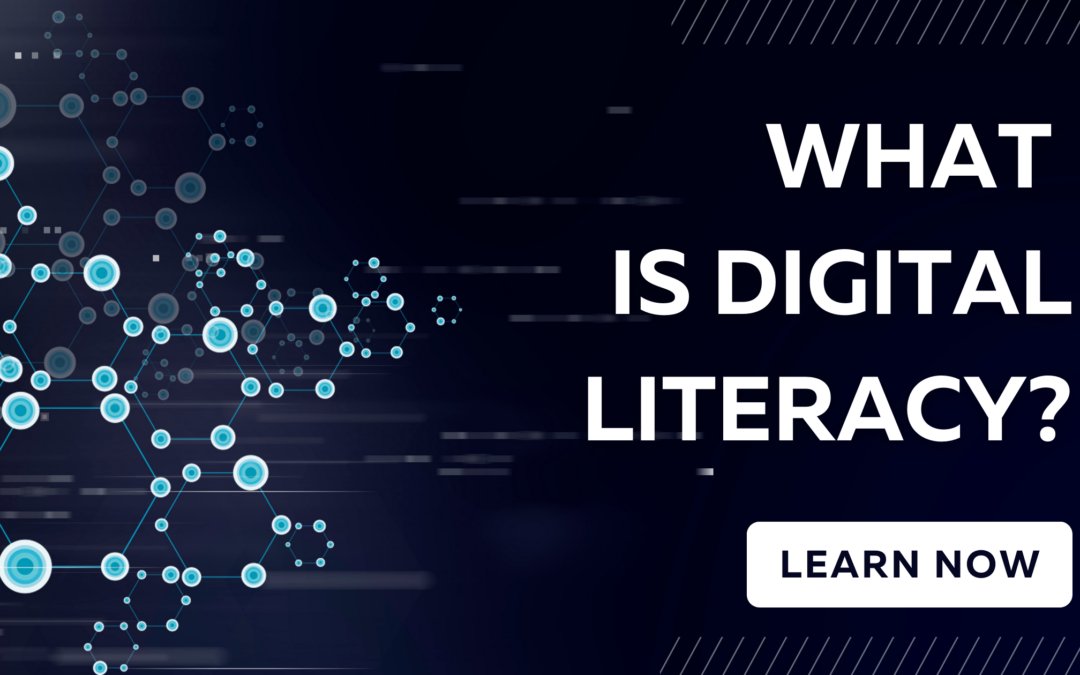In today’s fast-paced digital era, being digitally literate is not just an option; it’s a necessity. The ability to effectively navigate and understand the online world has become an essential skill set for individuals of all ages. Whether it’s for personal use, professional growth, or creative endeavors, mastering the foundations of digital literacy is key. In this comprehensive guide, we’ll uncover the tenets of digital literacy, covering essential topics such as passwords, privacy, personal information, property rights, permissions, protection, professionalism, photography, and performance. So, let’s embark on this enlightening journey and unlock the secrets to thrive in the digital realm!
The Power of Strong Passwords
In the digital realm, passwords serve as the first line of defense against unauthorized access to our accounts and personal information. Creating strong passwords is crucial to maintaining online security. Start by crafting unique and complex passwords that incorporate a mix of upper and lowercase letters, numbers, and symbols. Avoid using easily guessable information like birthdays or pet names.
Furthermore, it’s essential to utilize different passwords for each online account. While this may seem daunting, employing a password manager can simplify the process. Password managers store your passwords securely and generate strong, unique passwords for you. By following these best practices, you’ll fortify your digital fortress and protect your sensitive information from prying eyes.
Safeguarding Privacy in the Digital Age
Protecting our privacy online has become increasingly challenging with the vast amount of personal information we share. It’s essential to understand the potential risks and take necessary precautions to safeguard our privacy. Start by adjusting privacy settings on social media platforms and other online services to limit the amount of personal information available to the public.
Additionally, be cautious about sharing personal details with unfamiliar websites or individuals. Always verify the legitimacy of websites before sharing sensitive information, such as credit card details or social security numbers. Embracing a skeptical mindset when it comes to sharing personal information is a cornerstone of digital literacy.
Respecting Personal Information and Property Rights
Understanding the value and significance of personal information and property rights is vital in the digital landscape. Whether it’s your own work or someone else’s, respecting intellectual property rights is crucial. When using or sharing content, ensure you have proper permissions or adhere to copyright laws.
Moreover, safeguarding your personal information is paramount. Be mindful of the information you share online and consider the potential consequences. Remember, once something is out there, it’s challenging to retract. Protecting your digital footprint is an integral part of digital literacy.
Navigating Permissions and Access Control
In the interconnected online world, permissions and access control play a crucial role in maintaining data security and privacy. Whether it’s granting access to apps, sharing files, or allowing others to view your content, understanding and managing permissions is essential.
Take the time to review the permissions you grant to apps and services, ensuring they align with your privacy preferences. Regularly audit and update permissions to prevent unauthorized access to your personal information. By being proactive in managing permissions, you can maintain control over your digital assets and mitigate potential risks.
Embracing Digital Protection Practices
With the increasing prevalence of cyber threats, implementing robust digital protection practices is imperative. Keep your devices and software up to date, as manufacturers frequently release security patches and updates to address vulnerabilities.
Furthermore, invest in reliable antivirus software and firewalls to add an extra layer of protection against malware and unauthorized access. Adopting secure browsing habits, such as avoiding suspicious websites and refraining from clicking on suspicious links, will significantly reduce the risk of falling victim to phishing attacks or malware infections.
Mastering Professionalism in the Digital Sphere
As our professional lives become more intertwined with the digital world, maintaining professionalism online is paramount. Employers and colleagues often form impressions based on our digital presence, so it’s crucial to curate a professional image.
Ensure your online profiles and social media accounts project a positive and professional image. Exercise caution when sharing personal opinions or engaging in controversial discussions online, as these actions can have unintended consequences on your professional reputation. Embrace the ethos of professionalism in your online interactions, and let your digital presence reflect your integrity and competence.
Photography Ethics and Digital Literacy
Photography has become an integral part of our digital lives, capturing precious moments and showcasing our creativity. However, it’s essential to understand and practice photography ethics when sharing images online.
Respect the privacy of others when taking and sharing photographs. Seek permission before sharing pictures of individuals, especially in private settings. Additionally, be mindful of copyright laws when using others’ photographs and give proper attribution when necessary. By adhering to ethical practices, we can ensure that photography remains a positive aspect of digital literacy.
Enhancing Digital Performance and Productivity
Digital literacy is not just about safety and security—it also encompasses enhancing performance and productivity in the online realm. Explore various digital tools and applications that can streamline your workflow and boost efficiency. From project management tools to collaborative platforms, there is an array of resources available to help you achieve peak performance in your digital endeavors.
Stay updated with the latest digital trends, as technology evolves rapidly. Continuously honing your skills and adapting to new tools and techniques will ensure you remain at the forefront of digital performance.
Fostering Creativity in the Digital Space
The digital world offers countless opportunities for creative expression. From graphic design to video editing, there are endless avenues to explore your artistic side. Familiarize yourself with digital creation tools and software that can help unleash your creativity.
However, it’s crucial to respect intellectual property rights and refrain from infringing upon others’ work. Seek inspiration from others while ensuring you add your unique touch to your creations. By fostering creativity in the digital space responsibly, you can contribute to the vibrant online community and showcase your talents.
Continuous Learning and Growth
Digital literacy is an ever-evolving field, requiring continuous learning and adaptation. Stay curious and embrace a growth mindset as you navigate the digital landscape. Attend webinars, workshops, and online courses to stay updated with the latest trends, best practices, and emerging technologies.
Engage with online communities and forums where like-minded individuals share knowledge and experiences. Remember, digital literacy is not a destination but a lifelong journey of learning and growth.
Congratulations! By delving into the tenants of digital literacy, you have acquired invaluable knowledge and skills to thrive in the online world. From securing your accounts with strong passwords to respecting privacy, property rights, and permissions, you now possess the tools to navigate the digital landscape responsibly. Remember, digital literacy is not merely about protection but also about professionalism, photography ethics, performance enhancement, and creative expression. Continuously cultivate your digital literacy skills, stay vigilant, and embrace the boundless opportunities that the online world has to offer!

